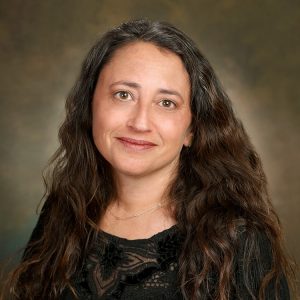We thought this would be a post-pandemic fall, and so we sought to learn what the pandemic had taught us, not realizing that its lessons were still unfolding. Yet here we find ourselves, heading towards 2022 still in the midst of a pandemic, wondering what we learned in 2021.
Nevertheless, we are filled with hope, because we have heard the stories of Temple Beth El congregants whose stories are full of beauty, and strength and perseverance. Mixed in with all the pain and loss, there is so much love and community, and we know this because we took the time, as a community, to listen.
It was an audacious plan, at what we then hoped was the beginning of the end of the pandemic. With the support of a grant from the Jewish Federation of Greater Charlotte, Temple Beth El was able to hire our first professional dedicated to organizing and social justice, Nicole Sidman. In March of 2021, we (Nicole, Rabbi Klass, and a dedicated core team of congregants) began organizing a listening campaign to hear what our congregants had endured and what they had learned. Calling it “From Social Distance to Social Justice,” our goal was to give people a place to connect and reflect after so much isolation and national upheaval. We wanted to understand not only their pandemic experience, but how our community’s perspective of social justice had changed in the wake of the pandemic.
The team’s first success was in gathering almost 150 congregants over zoom to reconnect, inspire each other, and share the following goals as we launched our listening campaign:
- Bring congregants together to share stories and begin to process their pandemic experience;
- Create a comprehensive and diverse campaign that is representative of all TBE members;
- Gather lessons that inspire us to build a better community; and
- Identify issues that matter to the greater congregation and develop a shared vision for how to address them in our larger Charlotte community.
Over the course of the next two months, our congregants gathered and shared. In the 20+ house meetings, some held in person and some held over zoom, we heard stories of fear and loneliness, of family and neighbors, and of inequity and increased awareness. Our community, time and again, described the ways in which the pandemic opened their eyes to the realities of racial injustice and income inequality. Congregant after congregant reflected on our education system and the varied, and often unequal, educational experiences of children, particularly children of color. And the pandemic laid bare who had support and who didn’t – financially, emotionally and socially. People were tired of feeling outraged and helpless. It was time to come together and act.
Members of our team read the notes from every one of those meetings. We analyzed the data and we heard the concerns. Using that input and information from our congregants, themes emerged that informed our decision to form three taskforces:
- Income Inequality;
- Access to Health Care and Mental Health; and
- Education and the Technical Divide.
In mid-August over 50 congregants committed to joining one of these three teams and beginning the work of discerning which slice of each of these three huge problems we might tackle as a community. We seek to do this work in partnership with other houses of faith and community organizations, recognizing that those already deep into the work are the leaders in this movement and that we are all stronger together.
Our work has just begun, and our goals are bold. At the time of submission of this article, we have only begun the research process for each of the above topics, and have not yet drilled down to the actions we might choose to take as a temple. By the time you read these words, we may well be close to announcing those actions – stay tuned!
In time, through partnerships and friendships, Temple Beth El aims to be part of a large coalition that can stand together when needed, advocating for those that are often left behind and standing beside our community as we fight for a more equitable city. And yet at its core, it all comes back to connection, sharing, and coming together. It all comes back to those simple meetings – sometimes over zoom, sometimes over coffee. Always with the intent of listening, telling stories, and building bridges.




